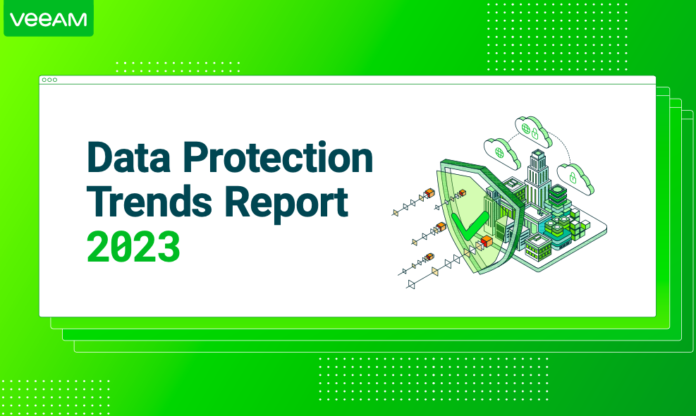Companies are challenged with more complex hybrid IT environments and are raising budgets to fend off cyberattacks as well as keep up as production environments continue to diversify across various clouds, according to Veeam Software’s latest Data Protection Trends Report.
Veeam commissioned the survey in late 2022 through an independent research firm, which engaged 4,200 unbiased IT leaders and implementors from all over the world and all sizes of organisations.
A top priority of organisations this year is improving reliability and success of backups, followed by ensuring that Infrastructure as a Service (IaaS) and Software as a Service (SaaS) protection is equitable to the protection they rely on for datacenter-centric workloads.
Key findings show that modern data protection is needed to keep businesses running. Four out of every five organisations believe that they have a gap, or a sense of dissatisfaction or anxiety, between what their business units expect and what IT services can deliver.
Also, data protection budgets are increasing. Globally, organisations expect to increase their data protection budget in 2023 by 6.5%, which is notably higher than overall spending plans in other areas of IT.
Despite the awareness and increase in preparedness, ransomware is winning. Cyberattacks caused the most impactful outages for organisations in 2020, 2021 and 2022, with 85% of organisations having been attacked at least once in the past 12 months — up from 76% in previous annual report.
Further, ransomware is the biggest hindrance to digital transformation. Due to its burden on budgets and manpower, ransomware and the current volatile cyber security landscape are taking priority for IT teams.
This is causing IT resources and budgets originally allocated towards digital transformation initiatives to pivot to cyber prevention. Not only do cyberattacks drain operational budgets from ransoms to recovery efforts, but they also reduce organisations’ ability to modernise for their future success; instead, they must pay for prevention and mitigation of the status quo.
In addition, container-centric workloads are growing in popularity. Containers, and more specifically Kubernetes, show all the characteristics of a mainstream production platform, with the same kinds of data protection strategy disparities as seen in early adopters of SaaS five years ago or virtualisation 15 years ago.
More than half (52%) of respondents are currently running containers, while 40% of organisations are planning to deploy containers – and yet, most organisations are merely protecting the underlying storage, instead of holistically protecting the workloads themselves.
This is typical as new production platforms enter mainstream, followed by recognition that legacy methods are insufficient, thereby creating an opportunity for third-party backup tools to ensure comprehensive protection.
“IT leaders are building and supporting increasingly complex hybrid environments, while the volume and sophistication of cyberattacks is increasing,” said Danny Allan, CTO and SVP of product strategy at Veeam. “Legacy backup approaches won’t address modern workloads. They need modern data protection.”
















